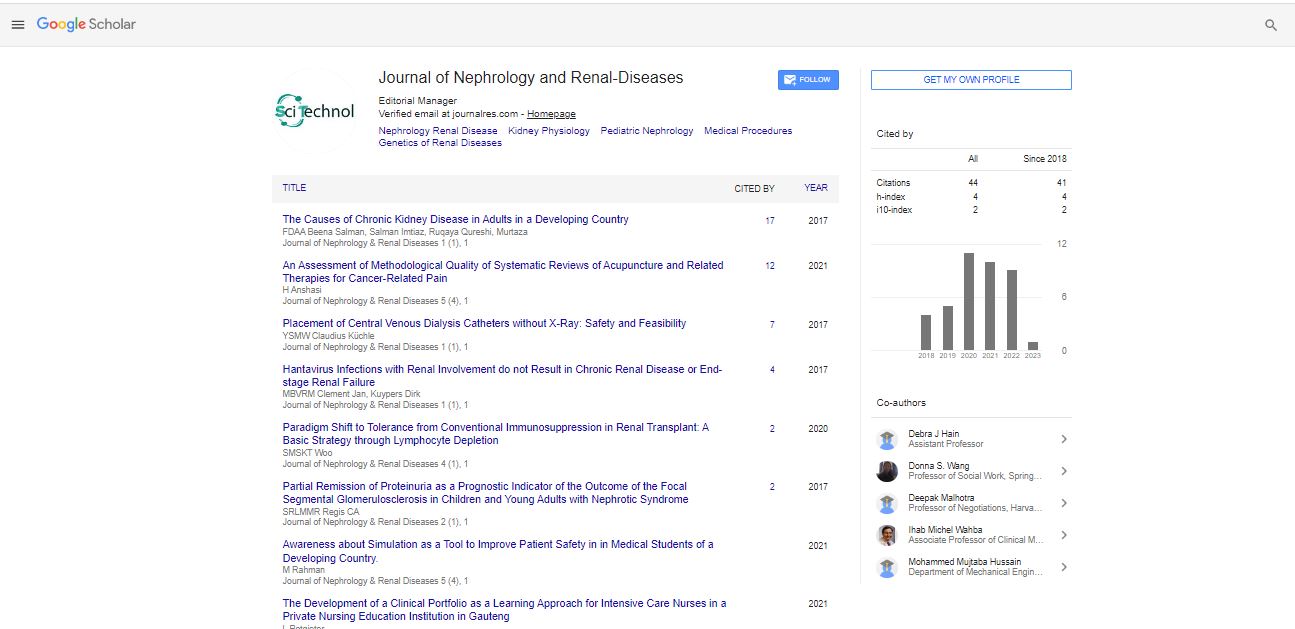New biosimilars approved or marketed in latin America: Regulations and barriers
Valderilio Feijo Azevedo
Universidade Federal do Parana, Brazil
: J Nephrol Ren Dis
Abstract
Background/Historical perspective: Availability of biologic disease-modifying anti-rheumatic drugs (bDMARDs) has improved clinical outcomes in systemic imune mediated inflammatory disorders such as Rheumatoid Arthritis, Ankylosing spodylitis, psoriasis, psoriatic arthritis, Crohns Disease among others, but it also increased the cost of treatment. Biosimilars, The regulated copies of biologic products, have a potential to reduce healthcare costs and expand access to treatment. However, due to a complex development process, biosimilars can be considered only those non-innovator biologics with satisfactory supporting evidence (ranging from structural to clinical), as outlined in the recommendations by the World Health Organization (WHO). In Latin America, a heterogeneous regulatory landscape and non-consistent approval practices for biosimilars create decision-making challenges for practicing rheumatologists. Most Latin American countries either have adopted or are in the process of adopting guidelines for the approval of biosimilars. However, among several marketed bDMARDs in the region, there is currently a couple of molecules that could be considered true biosimilars, based on the WHO criteria. On the other hand, there is a product called intended copy (=Biomimic). Unlike biosimilars which proved efficacy and safety by rigorous head-to-head comparative studies and received approval from international regulatory agencies, none of the intended copies proceeded head-to-head clinical trials compared with reference product and received approval from the global agencies as EMA, FDA or Health Canada. So safety and efficacy of those biomimics are not fully established. One such product had to be withdrawn from the market due to safety concerns. In this oral presentation we exclusively review the new biosimilars approved and marketed in LA and also we present the immediate future landscape of truly biosimilars in the treatment of autoimmune diseases in the region as well as the expected barriers to commercialization of those products.
Biography
Valderilio Feijo Azevedo has completed his PhD in medicalsciences/rheumatology/endothelial dysfunction Curitiba from Pontifícia Universidade Católica do Paraná (PUC-PR) and Master, rheumatology from Universidade Federal do Paraná. He is the Adjunct rheumatology professor at Federal University of Paraná, Brazil.Biopharmaceutical consultant. He has participated in development of new therapies in Spondyloarthritis, RA and Lupus, planning regulatory strategies, clinical trials, and market access. He has participated as a consultant for biologics/biosimilars, trials to demonstrate efficacy and safety, regulatory approval. He has been the Member of GRAPPA and ASAS and Americas Health Foundation.
E-mail: valderilio@edumed.med.br
 Spanish
Spanish  Chinese
Chinese  Russian
Russian  German
German  French
French  Japanese
Japanese  Portuguese
Portuguese  Hindi
Hindi 
